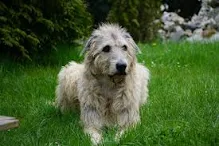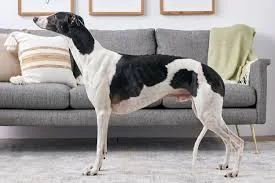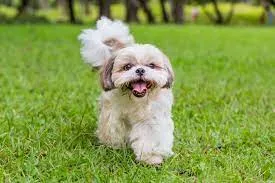Dogs have been man's best friend for centuries, offering companionship, loyalty, and unconditional love. However, not all dogs are created equal when it comes to their vocal tendencies.
Some breeds are naturally more vocal, while others are known for their quiet demeanor. If you're in search of a quiet dog, whether due to living in an apartment, having close neighbors, or simply preferring a less noisy companion, this blog post is for you. Let's delve into some of the quietest dog breeds and understand why they're considered so.
1. Basenji
Why it's quiet: The Basenji is often referred to as the "barkless dog." This doesn't mean they're completely silent; instead of barking, they make a unique yodel-like sound called a "barroo." This sound is not frequently made, making them a relatively quiet breed.
2. Whippet
Why it's quiet: Whippets, relatives of the Greyhound, are gentle and quiet dogs. They are known for their speed and agility but are equally famous for being couch potatoes. Their calm nature translates into a quiet demeanor, making them excellent apartment dogs.
3. Shih Tzu
Why it's quiet: Shih Tzus were bred to be companion dogs for Chinese royalty. They are generally calm and reserved, especially with their families. While they can be a bit vocal when strangers are around, they're not known to be excessive barkers.
4.
Cavalier King Charles Spaniel
Why it's quiet: These dogs are affectionate, gentle, and good-natured. They were bred to be lap dogs and companions, which might explain their quiet and calm demeanor. They might occasionally bark at a squirrel or bird outside the window but are not known for unnecessary noise.5. Borzoi
Why it's quiet: The Borzoi, or Russian Wolfhound, is a noble and reserved breed. They were bred for hunting, so they have a strong prey drive, but they're not particularly vocal. Their calm and gentle nature makes them a quiet addition to the household.
6. Italian Greyhound
Why it's quiet: Much like the Whippet, the Italian Greyhound is a smaller, gentle, and affectionate breed. They love lounging around and are not prone to excessive barking.
7. Akita
Why it's quiet: Akitas are strong and independent dogs. They are loyal to their families and tend to be reserved with strangers. While they can be protective, they are usually silent observers, choosing to bark only when necessary.
8. Newfoundland
Why it's quiet: Newfoundlands are gentle giants. They are known for their sweet nature and are especially good with children. Their calm demeanor translates into a generally quiet nature, though they can be vocal if they sense a threat to their family.
9. Clumber Spaniel
Why it's quiet: Clumber Spaniels are laid-back and not particularly alert, making them less likely to bark at every little noise. They are affectionate and get along well with other animals, further reducing potential sources of noise.
10. Scottish Deerhound
Why it's quiet: These dogs are gentle and friendly. They were bred for hunting deer in Scotland and are known for their quiet and calm nature, especially indoors.
When searching for a quiet dog breed, it's essential to remember that individual dogs have their own personalities. Training, socialization, and environment play significant roles in a dog's behavior. While the breeds listed above are known for being quieter, it's always a good idea to spend time with a dog before deciding to bring it into your home. This will give you a better sense of its individual temperament and noise level. Remember, a quiet dog is not necessarily a less active or less affectionate dog. Many quiet breeds are full of energy and love, making them perfect companions for various lifestyles.





















